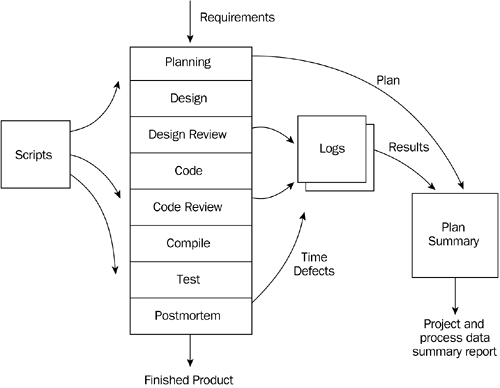Goals and Focus
| The focus of the Personal Software Process is the individual developer. The promise of PSP is higher software productivity, quality, and timeliness. The PSP defines a way of working where the individual developer:
The goal is that the individual developer will produce better schedules and plans, detect and resolve errors earlier, and exploit opportunities for personal improvement. The PSP structure, shown in Figure B.2, describes the methods that PSP uses for planning, estimating, data gathering, quality management, and design. Figure B.2. Process Structure [*]
The PSP process elements consist of the following components :
In his book, Humphrey presents data that supports his claims that following PSP will help individual software developers improve their effectiveness. Since its introduction, the SEI has built up a significant body of data that continues to support the claims. Humphrey has now turned his attention to the next step up the organizational ladder ”the software development team. He has defined a Team Software Process (TSP) that is built on his previous work. |
EAN: 2147483647
Pages: 112
